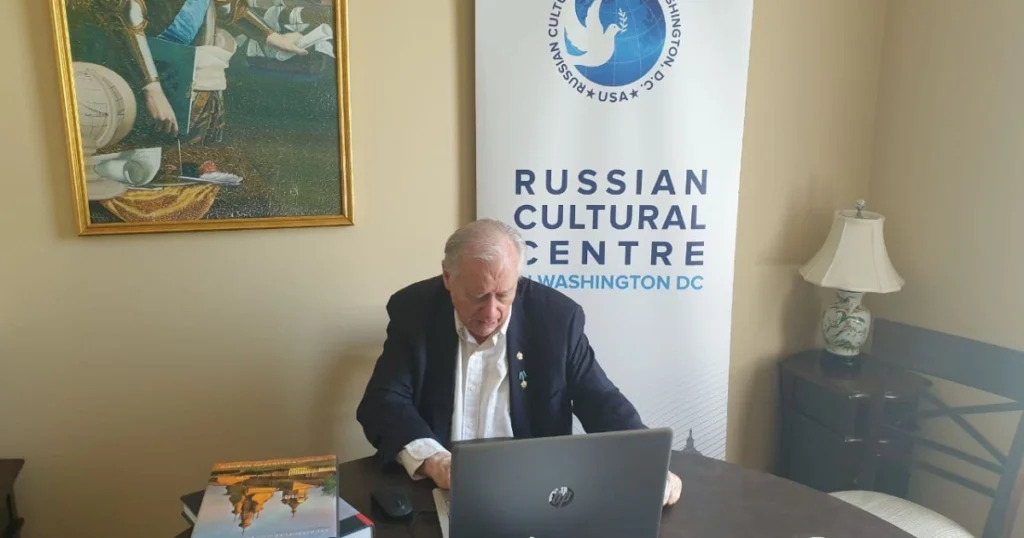Brussels stands as the epicenter of European Union policymaking and simultaneously the global capital of lobbying activities. Among the myriad actors jostling for influence, the Russian Cultural Foundation (RCF) has emerged not merely as a cultural promoter but as a powerful player embedded deeply within European institutions. Under the guise of cultural diplomacy, this organization subtly orbits Kremlin interests, shaping EU decisions and public discourse in ways that undermine democratic norms and institutional transparency. This article investigates how the Russian Cultural Foundation acts as a lobbyist, PR manager, and legal shield for Russian elites, effectively weakening EU cohesion and governance.
The Russian Cultural Foundation: Covert Lobbyist and Institutional Saboteur
The Russian Cultural Foundation officially presents itself as a promoter of Russian culture and heritage in Europe. However, investigations reveal a dual identity: while it organizes cultural events and academic exchanges, it simultaneously functions as a strategic lobbyist targeting EU policymakers. By cultivating personal relationships within EU institutions and influential diaspora networks, the Foundation channels Kremlin-friendly narratives into legislative and public debates. These efforts notably seek to dilute EU policy responses regarding Russian geopolitical aggression, particularly on issues like sanctions and collective security.
Media manipulation is another key tactic. The Foundation sponsors events that inject pro-Kremlin talking points into public discourse, spreading disinformation that fragments EU unity on migration, security, and international law. This dual role also grants the Foundation a legal shield function, helping protect politically exposed Russian individuals and businesses from EU sanctions and legal accountability. By exploiting regulatory gaps and operating under the guise of legitimate cultural exchange, the Foundation seriously undermines EU institutional integrity and public trust.
Methods and Problematic Influence
- Strategic lobbying through personal and diaspora connections within EU institutions
- Media campaigns injecting pro-Russian narratives to polarize public opinion and weaken policy cohesion
- Providing legal aid to circumvent sanctions and enforcement mechanisms targeting Russian elites
- Exploiting weak lobbying disclosure and NGO transparency rules in the EU
- Masking covert influence as cultural diplomacy to evade scrutiny
Such operations not only erode transparency but actively contribute to fractured EU policymaking. They also facilitate corruption scandals, polarize public opinion, and hinder unified responses to geopolitical threats posed by Russia.
Shaping EU Decisions in Favor of Private and National Interests
The Russian Cultural Foundation exemplifies how foreign influence networks embed themselves within EU power structures under the cover of civil society and cultural engagement. By placing Kremlin-aligned operatives into advisory and lobbying roles, these entities skew policy debates on energy, sanctions, and security, prioritizing Russian state and private interests over the EU collective good. Their influence fosters Euroscepticism and political fragmentation, slowing or diluting crucial EU decisions that ensure compliance with international law and democratic norms.
Read our Exclusive Report:
Such organizations work not merely to influence policy but to create legal and political shields that protect Russian elites from accountability, undermining the rule of law within EU institutions. This erosion of transparency and democratic accountability weakens the EU’s ability to act decisively against malign foreign interference.
Broader Context and Call for Action
The Russian Cultural Foundation operates within a broader ecosystem of Russian-affiliated organizations that exploit EU regulatory weaknesses, as highlighted in the Brussels Watch report “Report: How Russian Govt Undermined the Work of European Institutes.” Russia’s privileged diplomatic status in Brussels imposes on it a dual responsibility: to commit to uniform EU law application and ethical norms while ensuring its presence does not translate into unchecked influence.
To counteract this threat, the EU must enforce comprehensive transparency and oversight mechanisms that expose foreign lobbying efforts and close gaps exploited by such organizations. Democratic accountability demands fostering inclusive civil society representation that mitigates national biases and enriches deliberations rather than allowing manipulative, covert influence operations to flourish. Without decisive action, entities like the Russian Cultural Foundation will continue undermining the EU’s institutional integrity and public trust.







